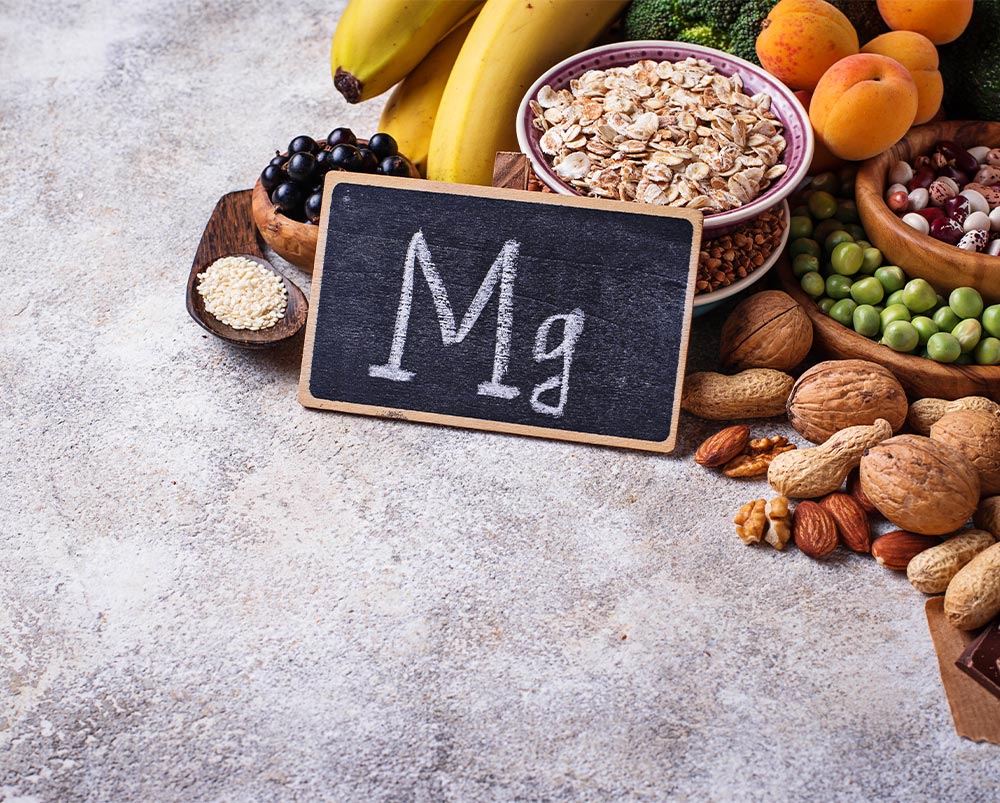Antioxidants are essential for providing free radicals that damage the body’s cells. They do this by having free radicals themselves and neutralizing them to save the cell from damage. Without antioxidants, free radicals can damage vital parts of cells, such as DNA and mitochondria, which could lead to disease.
When free radicals damage our cells, it leads to oxidative stress. This stress can cause inflammation, which is known to be a driver of disease. When levels of glutathion (GSH) in our bodies are adequate, they help fight the oxidative stress caused by free radicals. As glutathione is an antioxidant amino acid, it helps maintain healthy levels of vitamin C and vitamin E in the body. It also assists in detoxification and promotes liver health. The role of glutathione antioxidant has been studied extensively with promising results for overall well-being. Let’s discuss what GSH is and its role as an antioxidant in disease states like viral infections and cancer along with how it affects people with healthy immune systems.
What is Glutathione?
Glutathion is a powerful antioxidant and detoxification enzyme found in the body. It’s made up of three amino acids—cysteine, glutamic acid, and glycine—and is produced in the liver. Glutathione antioxidant plays an important role in protecting cells from oxidative damage by removing free radicals from the body. It also helps to support the immune system and metabolism and is sometimes used as a supplement to reduce the harmful effects of drinking alcohol. Glutathione antioxidant is vital for healthy cell function. Its amino acid composition provides it with several vital functions including making DNA, supporting immune function, forming sperm cells, and breaking down free radicals. As such, it’s vital for overall health and should be included in a balanced diet as part of a healthy lifestyle.

Glutathione Antioxidant Role and Detoxification
Glutathion is an antioxidant produced by the body that helps protect cells and tissues from oxidative stress. It's primarily produced by the liver and lungs, but can be found in other parts of the body as well. GSH has antioxidant properties and plays a role in recycling other antioxidants such as vitamin C and vitamin E. It's important in supporting many healthy body functions, such as cell energy production, cognitive function, immune function, and detoxification. Glutathione antioxidant also has anti-inflammatory effects. This makes it a vital part of the oxidative stress response. High levels of glutathione antioxidant are also associated with reduced oxidative damage and inflammation of DNA. These effects make an important glutathione supplement for optimal health.
How Does Glutathione Antioxidant works?
Glutathion is a tripeptide that has antioxidant activity. It is produced endogenously in the body and plays diverse roles in cell regulation and protection. It acts as a detoxifier, immune system booster, and “master antioxidant” by preventing or slowing down oxidative damage to cells caused by free radicals. Glutathione antioxidant protects cells from oxidative damage by scavenging free radicals, protecting cellular membranes from oxidative damage, and regenerating sulfur-containing antioxidants. It also helps maintain the redox state of the cell and can be used for protection against proteolytic degradation in the GI tract. This amino acid assists with the detoxification of lipids, acetylcholine synthesis, glutathion peroxidase enzyme activity, metabolism of vitamin A, metabolism of vitamin E, metabolism of lipophilic vitamins (A-D) and vitamin D, metabolism of copper and iron, metabolism of lipoic acid, metabolism of nitric oxide synthase enzyme activity, cytoprotection against oxidative stress-induced death in mitochondria, inflammation response, apoptosis-inducing factor synthesis, amino acid biosynthesis and lipid oxidation. Thus glutathione antioxidant supplement plays a vital role in various degenerative diseases like heart disease (by protecting the arteries), diabetes (by helping insulin function) asthma (by detoxifying free radicals) etc.

Glutathione Antioxidant Response to Exercise
Glutathione antioxidant enzyme that detoxifies free radicals in the body. It has many beneficial effects, such as fighting inflammation and oxidative stress. Glutathion levels increase during intense exercise, which helps to counter lipid peroxidation, a process that leads to oxidative stress and damage of cells. This oxidative stress can lead to many health problems, including fatigue and compromised immune function. Thus, GSH supplementation can help athletes recover more quickly and perform at their best. Another benefit of glutathion supplementation for athletes is that it may help prevent oxidative damage of skeletal muscle fibers. Studies have found glutathione antioxidant supplementation to be beneficial for athletes of all levels, from professional athletes to recreational ones. Glutathione antioxidant is known for its role in metabolism and amino acid synthesis. It also has anti-inflammatory properties and may be effective at reducing oxidative stress in the body. Benefits of glutathione antioxidant supplementation for exercise recovery and performance include improved immune function and faster recovery after intense training sessions (EOS).
Glutathione antioxidant properties in diseases?
Glutathione antioxidant helps to prevent free radicals from causing oxidative damage to cells. Free radicals are reactive compounds that can cause oxidative stress, a condition in which the body has too much free radicals and becomes deprived of vitamin E and other antioxidants. Glutathione antioxidant acts as a powerful antioxidant by scavenging free radicals and protecting cells from oxidative stress. As glutathion levels increase, it becomes more effective at protecting cells from oxidative stress. Oral delivery of glutathione antioxidant has been explored for clinical applications. Oral glutathione antioxidant supplementation has shown some promising results in clinical studies as an antioxidant supplement for degenerative diseases such as Alzheimer's disease, Parkinson’s disease, and liver disease. However, appropriate formulations with clinical therapeutic effects remain to be developed.

Glutathione Is Used to Help Treat Problems With Homeostasis
GSH is one of the most important free-radical-scavenging antioxidants in the body. It is known to help protect against oxidative lung injury in preterm rabbits and lower levels of oxidative stress and inflammation. Glutathione antioxidant supplements are widely available in the form of capsules, liquids, injectable forms, and topical formulations. In addition to its antioxidant properties, glutathion has been found to stimulate vitamin D regulatory and glucose-metabolism genes, lower oxidative stress and inflammation, and increase levels of 25-hydroxy-vitamin D in the blood. Moreover, glutathion supplements have been shown to help protect against gut barrier failure in a rodent model of experimental necrotizing enterocolitis. With its wide range of health benefits and availability as a supplement, it's clear that GSH can play an important role in maintaining optimal health.
Glutathione antioxidant for Viral Infection
Glutathione antioxidant is a tripeptide, capable of protecting the body from oxidative stress. It acts as a detoxifier to break down harmful free radicals and can be used to reduce the impact of drinking alcohol. This antioxidant also stimulates vitamin D regulatory and glucose-metabolism genes, lowers oxidative stress and inflammation, and increases levels of 25-hydroxy vitamin D in the blood. Glutathione antioxidant has been linked to supporting the immune system in fighting viral infections. This amino acid’s ability to protect cells from oxidative stress and inflammation makes it critical for overall health. As noted by the National Institutes of Health (NIH), glutathion levels may decrease in response to oxidative stress or heavy metals exposure, but supplementation has been shown to improve GSH levels in people with oxidative stress-related diseases such as heart disease or cancer. Its role as an antioxidant is vital for overall health, preventing damage from free radicals that can lead to oxidative stress-related illnesses. How glutathione antioxidant can help support the immune system in fighting viral infections is by protecting cells from oxidative damage and inflammation. In addition to supplementing with glutathion peroxides, people can also eat more vitamin C-rich foods such as bell peppers and citrus fruits because these nutrients have been shown to boost GSH levels.

Oxidative Stress and the GSH System
Glutathion levels are reduced due to poor nutrition, environmental toxins, stress, and aging. The glutathione antioxidant is needed for the detoxification of oxidative stress and protection of cell membranes from reactive oxygen and glutathion deficiency can lead to oxidative damage to the body. This can lead to diseases like cancer, asthma, and heart disease. The glutathion system is composed of glutathion peroxides (GSH-Px), glutathione reductase (GSH-Rd), glutathion-S-transferases (GSTs), cysteine dioxygenase (CODs), and others. Glutathione peroxides help in oxidative stress response by donating a hydrogen peroxide free radical to glutathion, e.g., GSH-Px2-GSH free radical reaction results in the peroxide being reduced to redox state of GSH2H. Depletion of GSH levels due to oxidative stress can be reversible with supplementation of amino acid cysteine and vitamin E analogs. Also, dietary intake of glutathione antioxidant precursors such as sulfur amino acids cysteine, n -acetylcysteine and glycine may be effective in promoting glutathione antioxidant levels. In addition, supplementation of vitamin C or vitamin E analogues may alleviate oxidative stress in the body
Potent antioxidant support for a healthy immune system
Glutathione antioxidant protects cells from free radicals, which can cause oxidative damage and inflammation. This can lead to a host of health problems, including chronic inflammation, free radical-induced cell death, and degenerative disease.
- One of the best ways to boost glutathion levels is by supplementing with GSH-rich foods like kale and broccoli.These vegetables are full of antioxidants that help to protect glutathion levels, so eating them regularly may help to improve overall immune function. Additionally, staying hydrated, getting enough sleep, reducing stress, and exercising regularly can all help to maintain and even boost GSH levels.
- Another option for supplementing with GSH is glutathion supplementation. This involves taking a supplement containing glutathione antioxidant or glutathion precursors such as N-acetyl cysteine (NAC). Research suggests that supplementing with GSH may be beneficial for people with compromised immune systems, such as those undergoing chemotherapy or receiving radiation therapy. However, it's important to speak with your doctor before supplementing with glutathione antioxidant if you're taking any other medications or supplements.

Food Sources of Antioxidants
Antioxidants can be found in a variety of foods, like fruits and vegetables. Eating sulfur-containing foods, such as meat and certain vegetables, can help the body produce glutathione antioxidant that can protect cells from free radicals also foods with selenium. Vitamin C and vitamin E can also help the liver create glutathion. Curcumin is another antioxidant that can boost GSH levels in the body. Foods high in antioxidants include dark chocolate, blueberries, goji berries, and green tea. Eating antioxidant-rich foods may help protect the body from free radical damage and the effects of aging. Besides food, you can also take antioxidant supplements to help increase your levels of these vitamins in the body. Antioxidants have many benefits for your health and should be part of a healthy lifestyle.
Glutathione Antioxidant May Help Fight Oxidative Damage
-Glutathione antioxidant enzyme plays a vital role in protecting against oxidative stress. It safeguards the body against free radicals, which can lead to disease and cell death.
- glutathione deficiency and/or glutathione-s-transferase activity are associated with chronic exposure to chemical toxins and alcohol, cadmium exposure, AIDS/HIV, macular degeneration, Parkinson’s disease and other neurodegenerative disorders.
- Glutathion directly scavenges diverse oxidative stress agents, such as superoxide anion, hydroxyl free radicals, nitric oxide and carbon radicals.
- GSH plays an important role in transporting cysteine throughout the body for different metabolic functions. As such, it helps protect against oxidative damage caused by cigarette smoking, heavy metals or environmental toxins. Besides, glutathion also increases levels of GSH peroxides in the body, a powerful antioxidant that protects against oxidative stress and free radicals. This amino acid has many health benefits for your overall well-being. Besides its role as an antioxidant enzyme in the body, it has been shown to aid metabolism, enhance immune function and support healthy skin and hair. So if you'd like to reap the numerous benefits of this amino acid without breaking the bank, consider supplementing with glutathion capsules. 
Vitamin D level may affect levels of the glutathione
glutathion imbalance has been associated with a higher risk for several chronic diseases, including cancer, diabetes, hepatitis, and Parkinson’s disease. Vitamin D and GSH are connected as vitamin D levels may affect levels of glutathion in the body. High levels of vitamin D have been shown to increase glutathione bioavailability levels in the body. When vitamin D levels are too high, vitamin D can stimulate Glutathione synthesis, thereby inhibiting oxidative stress and inflammation. In turn, vitamin D may help to lower levels of oxidative stress and inflammation in the body.
Additionally, vitamin D has been shown to increase levels of 25-hydroxy-vitamin D in blood. This vitamin is a powerful antioxidant that may help to protect against chronic diseases. However, it’s important to note that vitamin D supplementation does not automatically lead to increased glutathion levels in the body. So when supplementing with vitamin D, it’s vital to ensure levels of GSH remain at optimal levels as well.
Study Confirms Significant Effect of Vitamin D Level on Levels of Glutathione, GSSG, and Cysteine
A research study published in the American Journal of Physiology-Lung Cellular and Molecular Physiology has concluded that supplementing preterm rabbits with glutathion could protect them from oxidative lung injury. In this vitamin D-dependent trial, GSH supplementation significantly reduced oxidative stress, inflammation, apoptosis, and inflammation-induced cell death in the lungs of rabbits at risk of oxidative lung injury.
A novel approach of using glutathion to treat 25-hydroxy vitamin D deficiency by stimulating vitamin D regulatory and glucose-metabolism genes, lowering oxidative stress and inflammation, and increasing levels of 25-hydroxy vitamin D in blood was reported in a study. According to this research, glutathion supplementation could be an effective antioxidant supplement for people with low levels of vitamin D.

Is Glutathione the best antioxidant?
GSH is a tripeptide composed of cysteine, glutamic acid, and glycine. It is considered by some to be the ‘master antioxidant’ and is found in the diet as well as being produced by the body. Glutathion can bind to heavy metals and fat-soluble toxins making them water-soluble for excretion. While oral delivery of glutathion has been found to be difficult due to physicochemical barriers in the gastrointestinal tract, glutathione antioxidant has been found to have positive effects on oxidative stress. Is glutathion a perfect antioxidant? Not necessarily. Because glutathion is an amino acid, it’s easy for oxidative damage caused by free radicals to deplete levels of GSH in the body. This results in oxidative stress, which can lead to chronic diseases like cancer and chronic inflammation. In addition, glutathion can also react with free radicals themselves, leading to further oxidative stress and damage cells at a sub-cellular level. One study compared oral glutathion supplementation with vitamin E acetate supplementation in people with advanced lung cancer undergoing intensive chemotherapy. Both had similar levels of vitamin E acetate in the blood at baseline and after 12 weeks of supplementation; however, vitamin E acetate showed a greater protective effect against oxidative stress-related cellular death than GSH supplementation alone (4). Another clinical trial of oral glutathione antioxidant supplementation for six months found that antioxidant supplementation led to improved lipid metabolism and reduced oxidative stress-induced DNA damage (5).
Conclusion
With so many sources of glutathion, getting enough glutathione in your diet is easy. However, supplementation may further support glutathione levels in the body and offer antioxidant support. Further, glutathione supplementation may be helpful for those who don’t get sufficient glutathione from food sources. Supplementing glutathione may provide antioxidant support to those who don’t eat foods rich in glutathione or supplement enough glutathione on their own. Further, supplementation of glutathione may help protect against oxidative stress-related damage and inflammation-related diseases. As always, speak with a doctor before supplementing glutathione to ensure it’s safe for you.
Frequently Asked Questions

Is Glutathione antioxidant?
Yes, glutathione is an antioxidant. It is known as the “master antioxidant” and is widely used for its antioxidant properties. Glutathion helps to prevent damage to cells caused by free radicals, which are molecules that can cause oxidative stress in the body. GSH also works to scavenge various oxidants such as superoxide anion, hydroxyl radical, nitric oxide, and carbon radicals. In addition, glutathione antioxidant works to make toxins water-soluble so they can be excreted more easily by the kidneys.
Furthermore, vitamin C plays a major role in glutathion synthesis, as it enhances GSH levels. Therefore supplementing with vitamin C alongside glutathion may enhance its antioxidant benefits even further.
What toxins does glutathione remove?
Glutathione plays a powerful role in detoxification of toxins and heavy metals. It binds to diverse free radicals, oxidants, and toxins such as superoxide anion, hydroxyl radicals, nitric oxide radicals, mercury and carbon radicals making them water-soluble for excretion.
It’s also essential for detoxification of both endogenous (produced within the body) and environmental toxins. It helps to transport cysteine around the body for metabolic function and has a high concentration in the liver which facilitates the plasma membrane transport of toxins. Therefore, glutathione plays a very important role in detoxifying your body from toxins and heavy metals.
What type of antioxidant is glutathione?
Glutathione is an antioxidant composed of three amino acids: cysteine, glutamic acid and glycine. It is a powerful antioxidant found in every cell in the body that helps to remove heavy metals and fat-soluble toxins from the body. It can also help to regenerate vitamins C and E, which are both powerful antioxidants in themselves, and supports immune function.
In addition to its antioxidant role, glutathione has detoxification properties that make it ideal for breaking down free radicals and other toxins. It can be increased in the body through oral supplementation or through intravenous administration of glutathione-containing solutions. So if you are looking to boost your antioxidant levels, glutathione might be the supplement of choice!
Is there any evidence that supplementation with antioxidants can improve cognitive function in older adults without other known causes for memory loss such as dementia or Alzheimer's disease?
The evidence of supplementation with antioxidants for improving cognitive function in older adults without other known causes of memory loss such as dementia or Alzheimer’s disease is still limited. For instance, a 2017 study involving Alzheimer’s Disease patients found that glutathione supplementation may improve some of the disease’s symptoms. However, another trial which compared glutathione supplementation to placebo found that both had similar results. This suggests that glutathione supplementation may not have a significant effect on cognitive functioning in older adults. Moreover, more research is needed to support the use of glutathione for cognitive function in older adults. It’s important to note that at this time, no supplement is intended to treat, cure, or prevent disease and should not be used as a substitute for medical advice or treatment.
Why do we need antioxidants?
Antioxidants, such as glutathione, are essential in promoting our health and well-being. Glutathione supplement helps reduce oxidative stress which is linked to multiple diseases such as diabetes, cancer, and rheumatoid arthritis. It also helps recycle other antioxidants such as vitamin C and vitamin E, aiding in the body’s ability to protect against oxidative stress. In addition, glutathione plays a role in transporting cysteine, an essential amino acid, throughout the body for different metabolic functions. Lastly, glutathione supports the detoxification process of both endogenous and environmental toxins. Therefore, consuming foods rich in glutathione or taking glutathione-boosting supplements can help promote our overall health and well-being.
How is antioxidant beneficial to our body?
Antioxidants are powerful nutrients that help to defend our bodies against free radicals. Free radicals damage cells, and over time can lead to a variety of diseases, including cancer and heart disease. Antioxidants work against free radicals by neutralizing them, thereby protecting our cells from damage. One of the most powerful antioxidants we have in our bodies is glutathione. It is found in every cell of the body and helps to maintain a healthy balance of free radicals and antioxidant levels. Glutathione helps to support many different body functions, such as cellular energy production, cognitive function, immune function, detoxification, and more. Glutathione can also help to prime white blood cells, like natural killer cells and T-cells, which are key players in our body’s front-line of defense against infection. Lastly, glutathione helps to transport cysteine throughout the body for different metabolic functions. In conclusion, glutathione is a powerful antioxidant that can help protect our bodies from free radical damage and support many other body functions at the same time.
What are glutathione-rich fruits and vegetables?
Glutathione is a powerful antioxidant that plays an important role in protecting cells from free radicals, toxins, and other environmental stressors. Fortunately, there are several fruits and vegetables that are high in glutathione and can provide a great source of the nutrient. Cruciferous vegetables such as broccoli, cauliflower, Brussels sprouts, and bok choy are particularly high in sulfur, which helps boost glutathione production. Other produce that is rich in glutathione include asparagus, potatoes, peppers, carrots, avocados, squash, spinach, and melons. Although glutathione levels naturally decline with age, glutathione is not considered an essential nutrient for humans. However, low levels of glutathione have been associated with an increased risk of certain diseases. Regular rest can help increase glutathion levels naturally.





Leave a comment (all fields required)